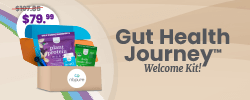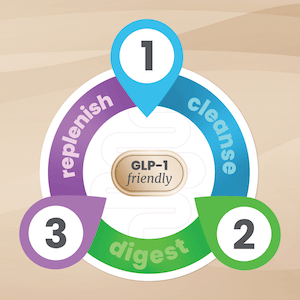February is American Heart Month, a time to reflect upon the state of your heart, encourage cardiovascular and coronary wellness, and establish baselines to measure against as the years go by. It's a time to come together as families and communities to take stock of our tickers and reset or reinvest in the strength of one of our most important organs.
Whether you embrace the month and share in social posts to promote awareness or follow some of the tips we're about to outline, it's our hope that you use February and beyond to love on your heart a bit!
Check out our five fast tips for a healthy heart below! We're not trying to scare anyone at home, but recent studies predict at least one American suffers a heart attack every 40 seconds. This is serious stuff!
1) Ask your family about its history of cardiovascular disease
Sometimes getting a headstart on the facts can really prepare you for future success. This is especially true in terms of cardiovascular disease and wellness. If heart complications or high blood pressure run in your genes, chances are you could also be susceptible to the same. Don't be afraid to ask your immediate and extended family about heart health this month, and be sure to document anything out of the norm so you can discuss with your family doctor.
2) The risk of heart attack increases with age
But don't let this scare you out of action. Rather, use this reality to fuel a month's worth of committing to physical activity and cardio. Walking, jogging, swimming, cycling, and hiking are all wonderful options to consider. If you want something with a higher intensity, try out a group activity like Orange Theory, Barre or any other aerobics-based class.
No matter what, make it a habit to get up and get moving daily to fight against the chance of heart attack.
3) Check your blood pressure
Heart health 101, right? The truth is many people skip this fundamental exercise and they risk catching the early signs of stroke or heart disease. And for all of those reading who are "healthy", yes, you should also check. Hypertension isn't always something you can notice.
Check regularly, document, monitor change and share the information with your doctor.
4) Easy on the salt
As with most everything in the body, a healthy diet and responsible consumption can have its benefits. Use February and American Heart Month as an opportunity to lessen your salt intake. Simply put, too much salt can in your diet can strain your heart, kidneys, arteries and even the brain.
5) Know the signs
Be informed and share your knowledge with family and friends. Picking up on the early signs of heart disease and complication give you that much more time to respond and rightsize. This is by no means an exhaustive list, but it should help you get a basic read on things and give you some things to discuss with the medical professionals in your life.
- Tingling arms and numb fingers
- Dizziness and shortness of breath, especially while at rest
- Swollen ankles, feet or legs
- Fluttering sensations in the chest or "skipping a beat"
- Increased confusion or dizziness
- General fatigue and inability to partake in normal activities
If you or someone you know is experiencing any of these signs, be sure to alert your cardiologist. They'll be able to help you discover fitness, dietary and medical solutions along the way.


















